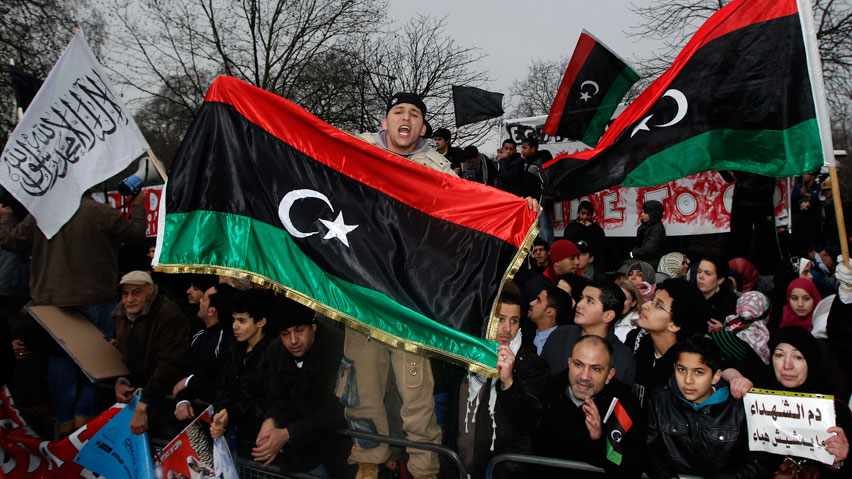
The fighting in Libya and deadly protests in Syria rage on. But the enduring legacy of the Arab Spring will be forged after the battles have ended, as liberated lands like Tunisia confront the task of building stable, democratic societies. Seen in light of the experiences of Afghanistan and Iraq over the past decade, this challenge seems forbidding.
But we should take heart from transitions elsewhere that have transformed failing states into promising democracies in relatively short order. The Baltic states and post-dictatorship Latin America offer some examples of fast progress. My country, Georgia, is a more recent case. While cultures and contexts might differ, there is a great deal to be learned from these stories of relatively successful transformation.
Perhaps the biggest lesson is this: We must not underestimate the potential for change. Transitions can happen more quickly than conventional wisdom would have us believe.
My government understands well that we have a long way to go before we are a robust democracy. But Georgia’s case underscores that revolutionary moments matter — above all — because they seize the imaginations of the broad public. Ordinary people see that values can become the basis of politics, and that they themselves can take responsibility for their future.
Put another way, we should be careful not to fall victim to our own low expectations of others. After all, this is what led to the international community’s outright failure to foresee the events of the Arab Spring. We had convinced ourselves that the people of Egypt, Tunisia and other countries were somehow (culturally and otherwise) incapable of such an uprising. We should not make the same mistake twice.
Many observers were similarly resigned around the time of the 2003 Rose Revolution in my country. The situation in Georgia was so catastrophic that we had to rebuild our state almost from scratch. Yet, being forced to begin with a clean slate was in many ways a blessing, not a curse.
Not unlike the dictatorships in North Africa, the essence of the Soviet Union was control and corruption. An overweight, inefficient state held the population by the throat. Immediately after the Rose Revolution, therefore, we put a definitive end to the era of state domination. We dissolved the KGB, fired the entire police force, and dismissed customs officers and tax agents. At the same time, we opened up our economy and our educational system.
Our first comprehensive reform — the complete transformation of our law enforcement bodies — is especially illuminating. We started by firing our entire traffic police force. The police had long been a centerpiece and symbol of the state’s corruption and intimidation. Georgians lived for three months without traffic police — and amazingly, during this very period, crime rates went down by 70 percent. Why? One explanation is that in this way the Georgian people were given — and seized — direct responsibility for the success of the revolution.
Thanks to this change in our police and in all our other bureaucratic structures — and thanks also to the widespread feeling among people that they owned these transformations — we have made greater progress on Transparency International’s Corruption Index since 2003 than any other state in the world. Once a place where foreign investors were kidnapped by gangs and mafias, Georgia was singled out by the World Bank as the number one economic reformer in the world over the last five years.
The fight against corruption is the cornerstone of any effort at real, enduring transformation — and it should be the foundation of reform in North Africa. In its absence, these societies will again quickly be at risk of disempowering their populations. Corruption, after all, knows no ideological bounds. Our fight against graft liberated institutions that had been seized by a small elite and used to exact bribes from the average Georgian. In some ways, one of the greatest signs of success in Georgia today is that our institutions are more popular than any political figure.
Another lesson from our experience is that only a whole-of-government and whole-of-society approach to reform can bring tangible, enduring results. The reforms of the judiciary, police, tax collection, customs, the political class, electoral code or education system should not be implemented individually, but as part of a complete project of social transformation. Of course, this ups the ante — especially in a state with limited talent and resources. It cannot be done alone and in isolation.
No matter how beautiful and moving popular demands for freedom and democracy are, the real revolution consists more in the long and difficult process of reform that follows. It is incumbent on all countries to share our experiences — successes and failures — with the nations that have just liberated themselves. Georgia is already working with the new governments in the southern Mediterranean so that they can draw on our experiences to help build sustainable civic institutions and enduring democracies. Perhaps it is no surprise that this is a learning experience for us as well, since the essence of democracy is that it must constantly adapt and improve.
Temuri Yakobashvili is Georgia’s ambassador in Washington. This essay first appeared in GlobalPost.
Image: arab-spring-protests.jpg
